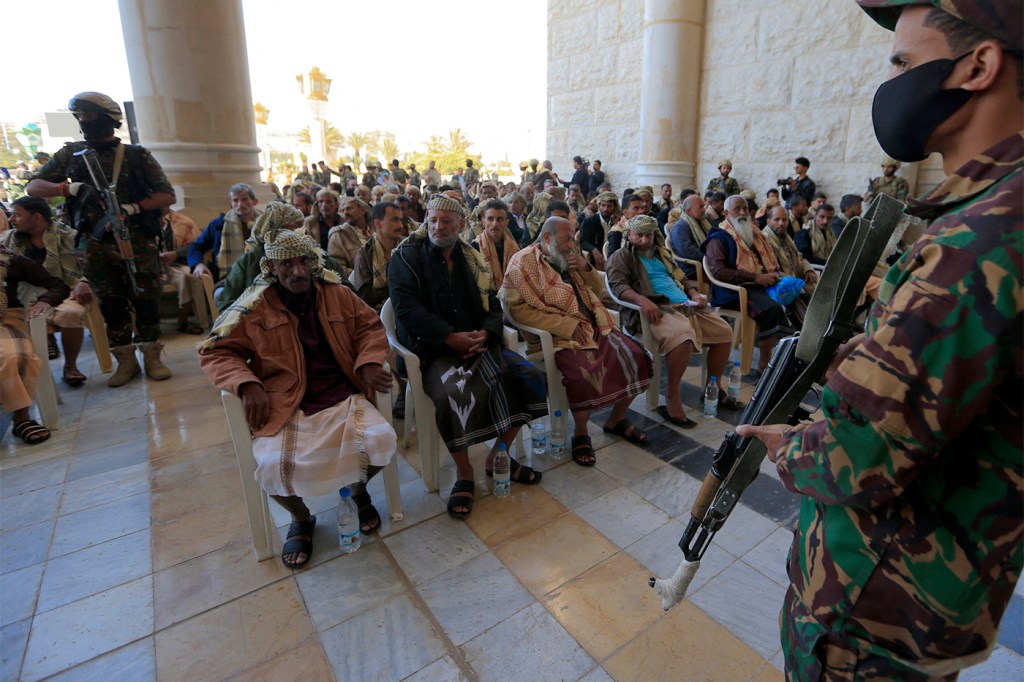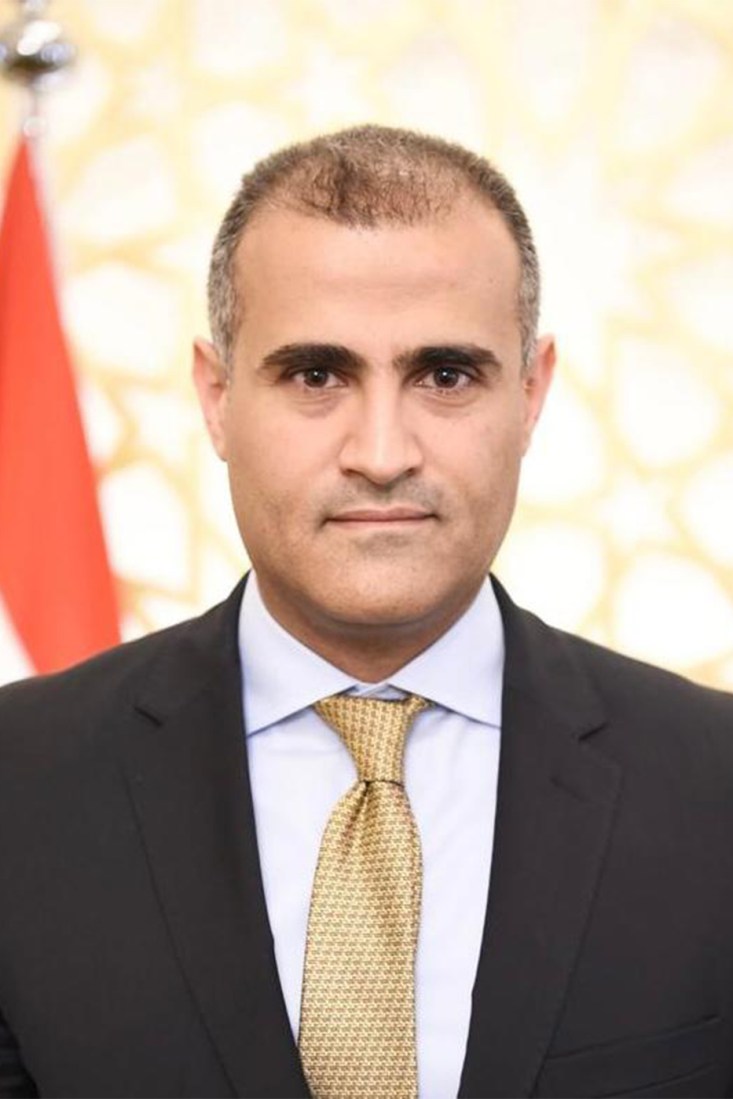Northeastern students wanted information on the Yemen conflict. So they went straight to the ambassador
“There are a lot of things not being reported but that are happening, and that’s where the value of having this conversation with the ambassador comes in,” says Northeastern student Leopold de la Torre.

It seemed like a bit of a longshot to the Northeastern University students studying international relations.
But it takes only five minutes to write an email, they reasoned. Plus, who better to ask about the conflict in Yemen than someone at the country’s embassy?
So they reached out to the embassy by email.
“It was just an idea that we threw out there — we thought if it works, then great. If not, no harm done,” recalls Leopold de la Torre, a second-year student at Northeastern.
But less than two hours after sending the email, the students had a reply: Would they like to interview Mohammed Al-Hadhrami, Yemen’s ambassador to the United States, on Zoom and on the record?
“I think it was really cool that we were able to make that happen,” said Rania Kolluri, a second-year student at Northeastern.
De la Torre, Kolluri, fourth-year student Isabella Stein and second-year student Aishani Raju were enrolled in the fall in an international conflict and negotiation class. Students in the class were asked to analyze a current conflict and write policy memorandums to the different groups involved.
The students selected the conflict in Yemen.
The civil war in Yemen began in 2014, when the Houthis — Iranian-backed Shiite rebels — seized the country’s capital of Sanaa. The rebels have been at war with a Saudi-led coalition battling on behalf of the country’s exiled government since 2015. More than 150,000 people, including fighters and civilians, have been killed in the war. In addition, the Houthis have been attacking commercial ships in the Red Sea.
Stein explained that the decade-long conflict in the Middle Eastern country essentially pits an exiled, more democratic, coalition Yemeni government against Houthi rebels who wish to restore a monarchy.
“The issue is really an issue of control and political ideology,” Stein says. “It’s really about the type of government that different factions believe should exist in Yemen.”

But the conflict — which has involved territorial disputes and military action and targeting of civilians and infrastructure — has also turned into a proxy war among other powers, Stein says. Saudi Arabia, the United Arab Emirates and Iran support different factions; a branch of Al-Qaeda has been active in the region; and the Houthis have been attacking ships in the Red Sea in relation to the Israel-Hamas war, drawing American retaliatory airstrikes.
Meanwhile, the conflict has displaced an estimated 4.5 million people — representing 14% of the country’s population — and 21.6 million people need humanitarian assistance and protection, according to the U.N. Refugee Agency.
Yet, the students found that there was not a lot of current information about the conflict.
“It’s now getting more attention because of the conflict in Israel and Palestine, but we couldn’t get much information that was other than five or six years old,” Kolluri says. “Now, new airstrikes bring more information, but then the humanitarian situation is neglected.”
That’s where the students say Al-Hadhrami was helpful.
“There are a lot of things not being reported but that are happening, and that’s where the value of having this conversation with the ambassador comes in,” de la Torre says. “He can tell us more about what’s happening.”
Tell them, he did.
Al-Hadhrami discussed recent intelligence that Russia was arming the Houthis — making the conflict also another front in the differences between Russia and the United States. The ambassador also discussed policies focused on eliminating Houthi leadership rather than targeting infrastructure and the best ways that the United Nations could get involved in providing direct humanitarian aid.
Editor’s Picks
The students say they were impressed with his friendliness and candor.
“He was happy to answer questions — not once did he say ‘I’m not going to comment on that,’” de la Torre says. “We were privy to some amazing information — at some points we were shocked that we were able to get such value out of it just from a leap of faith and sending one email.”
The students say that the experience prepares them well as they pursue work in international affairs. In fact, Kolluri and de la Torre plan to visit the Yemeni Embassy while in Washington for their future internships with the State Department.
Their professor agrees that the initiative they demonstrated prepares them well.
“Having the courage to reach out, even if it might be unlikely, is an important skill and way of approaching complex situations,” says Panagoula Diamanti-Karanou, an associate teaching professor at Northeastern. “They are not relying on third parties to relay information, but they go straight to the source for this information so that it is as authentic as possible.”
And future international conflict and negotiation students may be wise to take note.
“It raises the standards and sets a precedent,” Diamanti-Karanou says of the students’ initiative. “They have shown the way.”











